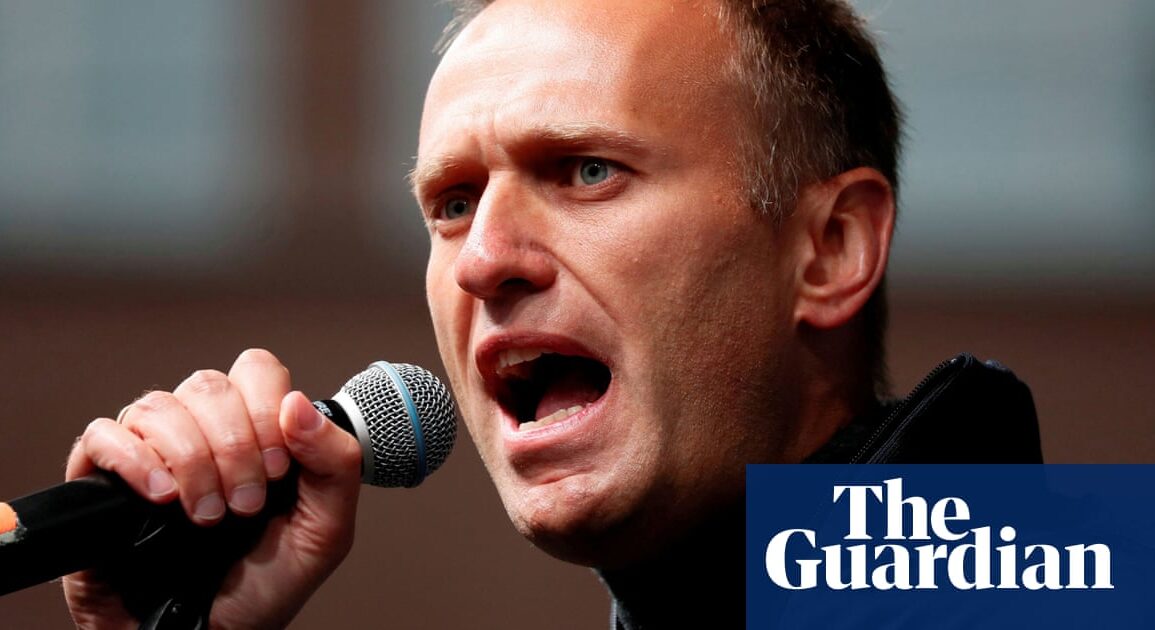
The Russian opposition leader Alexei Navalny has died in jail, the country’s prison service has said, in what supporters and western officials have called a political assassination attributable to Vladimir Putin.
Navalny, 47, one of Putin’s most visible and persistent critics, was being held in a jail about 40 miles north of the Arctic Circle, where he had been sentenced to 19 years under a “special regime”.
In a statement, the federal penitentiary service for the region where Navalny was incarcerated said that he “felt unwell after a walk and almost immediately lost consciousness”.
“All necessary resuscitation measures were carried out but did not yield positive results,” the statement said. “The paramedics confirmed the death of the convict.” The Kremlin said Putin had been informed of his death but had no further information.
Western reaction was swift, as top officials from the US and Europe accused the Kremlin of causing Navalny’s death. “His death in a Russian prison and the fixation and fear of one man only underscores the weakness and rot at the heart of the system that Putin has built,” the US secretary of state, Antony Blinken, said. “Russia is responsible for this.”
Navalny looked healthy when he appeared by video for a courtroom appeal on Thursday. Speaking from prison, Navalny complained about the frequent fines he received while in a punitive cell and asked the judge to send him some money “as my own is running out thanks to your decisions”.
The cause of death had not been established, the penitentiary service said. Last year Navalny was treated in hospital after complaining of malnourishment and other ailments due to mistreatment in prison.
A lawyer for Navalny did not immediately confirm reports of his death, telling the Novaya Gazeta newspaper that Navalny’s family had asked him not to comment on the reports. “Alexei had a lawyer at his place on Wednesday,” Leonid Solovyev, his lawyer, told the paper “Everything was normal then.”
A close aide also did not confirm the reports of Navalny’s death.
Navalny is survived by his wife, Yulia, and their two children. On 14 February his team published an Instagram post dedicated to his wife, in which he wrote: “I feel that you are close to me every second and I love you more and more.”
In early December, Navalny disappeared from a prison in the Vladimir region, where he was serving a 30-year sentence on extremism and fraud charges that he had called political retribution for leading the anti-Kremlin opposition of the 2010s. He did not expect to be released during Putin’s lifetime.
Supporters and allies were visibly stunned by the news of his death, and many pointed the finger directly at the Kremlin.
Dmitri Muratov, the editor of Novaya Gazeta, told Reuters that Navalny’s death was “murder” brought on by his mistreatment in prison. Mikhail Fishman, a journalist, blinked back tears on the TV Rain channel as he said: “We must learn to live with this news somehow. But we understand the scale of what has happened, that we will mark this as a before-and-after moment.”
The US national security adviser, Jake Sullivan, told National Public Radio: “If it’s confirmed, it is a terrible tragedy.”
Several other foreign officials also said Putin was directly responsible. “Alexei Navalny fought for the values of freedom and democracy. For his ideals, he made the ultimate sacrifice,” the European Council president, Charles Michel, posted on X. “The EU holds the Russian regime for sole responsible for this tragic death.”
Ukraine’s president, Volodymyr Zelenskiy, said it was “obvious” that Putin was behind Navalny’s death. The German finance minister, Christian Lindner, said: “Alexei Navalny fought for a democratic Russia. For that, Putin tortured him to death.”
A former nationalist politician, Navalny helped foment the 2011-12 protests in Russia by campaigning against election fraud and government corruption, investigating Putin’s inner circle and sharing the findings in slick videos that garnered hundreds of millions of views.
The high-water mark in his political career came in 2013, when he won 27% of the vote in a Moscow mayoral contest that few believed was free or fair. He remained a thorn in the side of the Kremlin for years, identifying a palace built on the Black Sea for Putin’s personal use, mansions and yachts used by the ex-president Dmitry Medvedev, and a sex worker who linked a top foreign policy official with a well-known oligarch.
In 2020, Navalny fell into a coma after a suspected poisoning using novichok by Russia’s FSB security service and was evacuated to Germany for treatment. He recovered and returned to Russia in January 2021, where he was arrested on a parole violation charge and sentenced to his first of several jail terms that would total more than 30 years behind bars.
“Navalny left one Russia, returned to another, and perished in a third, where political prospects are absent in principle,” wrote Alexander Baunov, a senior fellow at the Carnegie Russia Eurasia Center. “There are only martyrs.”
Putin has recently launched a presidential campaign for his fifth term in office. He is already the longest-serving Russian leader since Joseph Stalin and could surpass him if he runs again for office in 2030, a possibility since he had the constitutional rules on term limits rewritten in 2020.
This post was originally published on this site be sure to check out more of their content.









